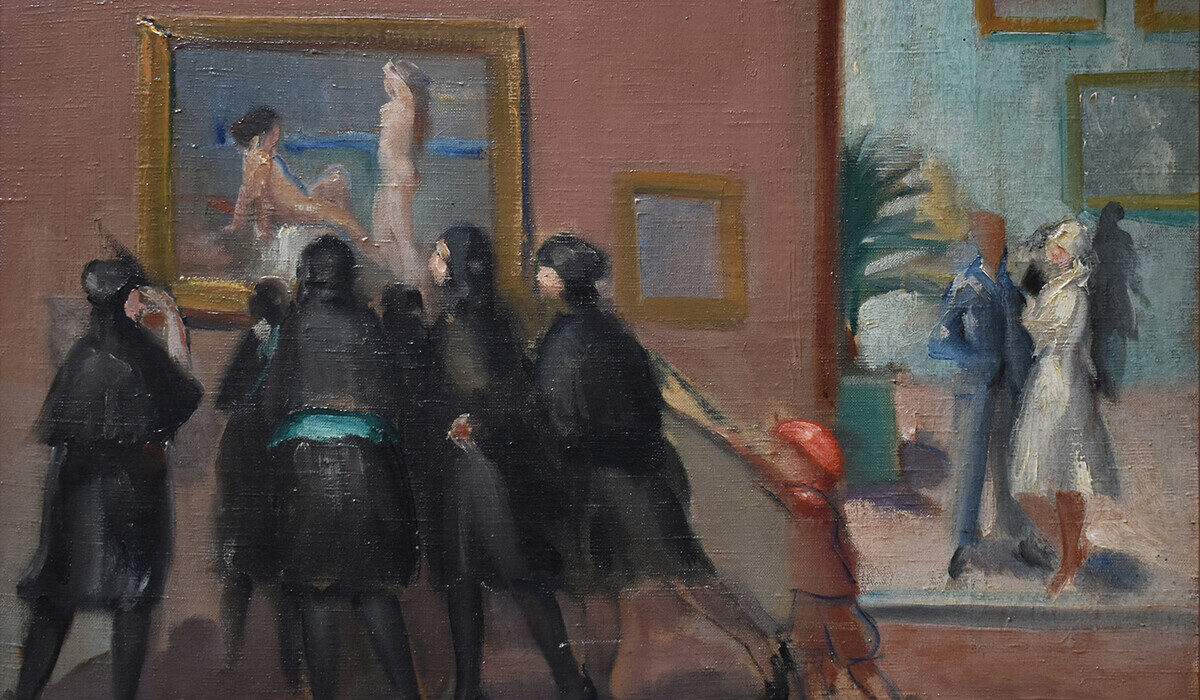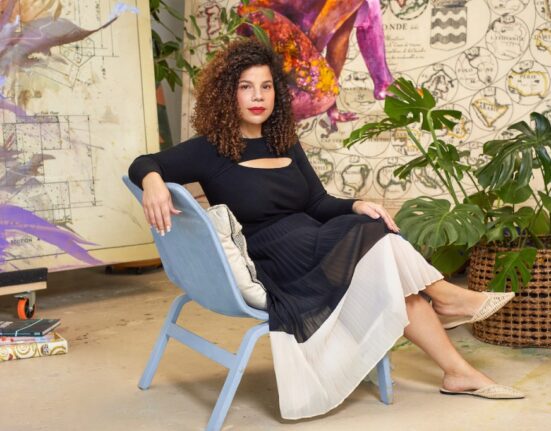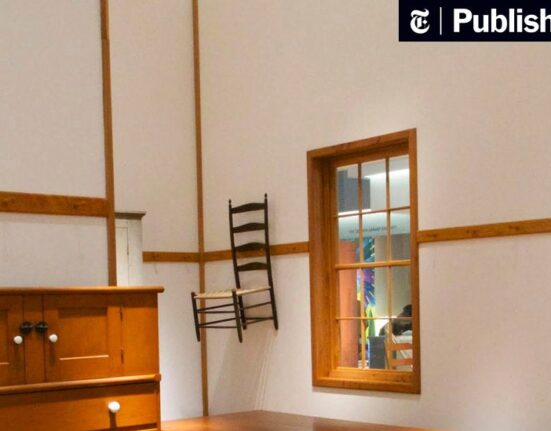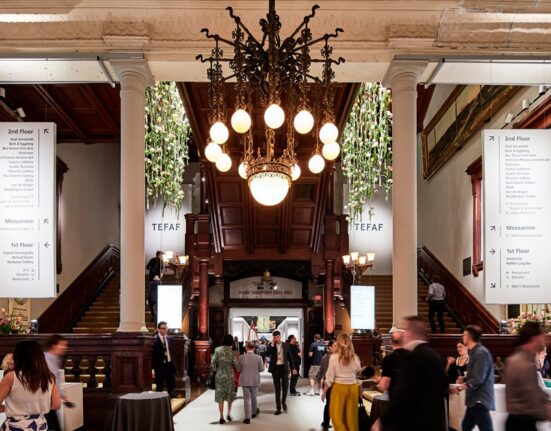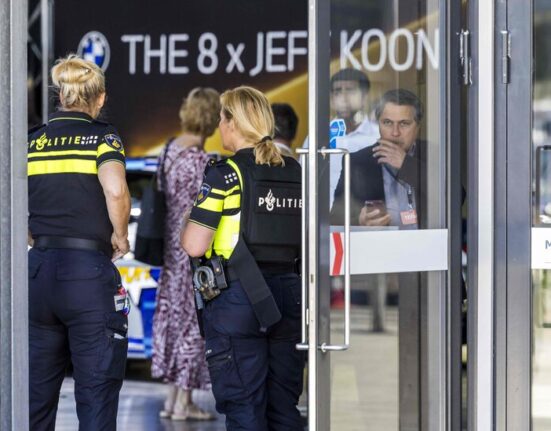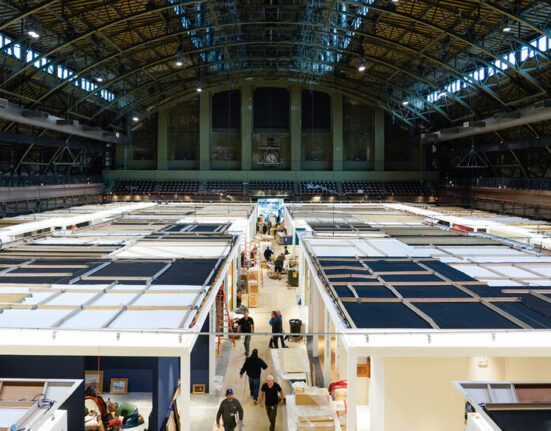The Wallach Art Gallery at Columbia University presents Partisans of the Nude: An Arab Genre Art in The Era Of Contest, 1920–1960, the first comprehensive US museum survey of nude genre art by artists in the Middle East and North African region that were formerly Ottoman but not-yet-Arab.
Partisans of the Nude comprises 57 paintings, 25 drawings, and four sculptures supplemented by photographs, journals, and musical recordings that speak to the local popular and critical reception of the nude in aesthetic developments, political debates, and literary and musical movements during this period. The makers of these works range from internationally recognized artists credited with founding Arab art schools, such as Saloua Raouda Choucair, Jewad Selim, Kahlil Gibran, and Huguette Caland, to little-known and yet-to-be-studied artists, intellectuals, and critic-activists such as Ali Bellagha, Sophie Halaby, and Hamed Abdalla. According to Scheid, “Partisans of the Nude reveals that emergent cultures of the region are often misunderstood and misrepresented when flattened as simply ‘Arab.’ It explores why that history seems so improbable and how it relates to contests over Arab society today.”
Though often spoken of as taboo and practically absent from Arab art production, the nude genre was important for early twentieth-century artists who sought to define their societies as post-Ottoman and cosmopolitan. It even had a role in defining a modern Islamic identity. The exhibition argues for new ways of thinking about the formation of modern Arab and Muslim audiences and subjectivities. It contributes new tools of art historical analysis and identifies alternative cosmological sources.
The period from 1920 through 1960 coincides with the political transition from the Ottoman Empire to French and British protectorates, to statehood for countries like Egypt, Lebanon, Morocco, and Iraq. Paintings and sculptures of nudes populated professional studios, graced exhibitions in Beirut and Cairo intended for self-consciously modernizing audiences, peppered popular publications devoted to anti-corruption campaigns and literary innovation, and inspired nudist movements. A painting by Omar Onsi (1901–69), A l’Exposition (1932), depicting visitors at an art exhibition, is a prime example for the complexities of considering the nude and its reception during the Protectorate period and directly after.
Although recognized as foundational to Western art since Ancient Greece, the role of the nude played in carving out an Arab art has been ignored by both nationalist histories and Orientalist narratives. By contrast, the exhibition shows that art movements outside the West created their own, connected and commandeering modernity through the genre.
At this time many artists from Tunisia to Bahrain turned to the nude as an important element in their self-fashioning and double decolonizing, for while they resisted European incursions and control, they also eschewed “Ottoman conventions” of cultural production. They sought forms that would not only enunciate but cultivate a modern relation to their world. The nude was eminently important for mirroring audiences and inserting them into continentally based art genealogies. By dislocating Parisian representational conventions, for example, they de-provincialized the production of fine art from Paris and its Western centrism and claimed it for their far-flung local projects.
Partisans of the Nude includes works by Shafic Abboud, Hamed Abdalla, Onnig Avedissian, Simone Baltaxé Martayan, Ali Bellagha, Aly Ben Salem, Huguette Caland, Saloua Raouda Choucair, Georges Corm, Moustapha Farrouk, Ismail Fattah, Cesar Gemayel, Kahlil Gibran, Sophie Halaby, Jamil Hamoudi, Ibrahim Hazimeh, Ibrahim Ismail, Jabra Ibrahim Jabra, Féla, Kefi Leroux, Munira Al Kazi, Helen Khal, Hatem El Mekki, Ahmed Morsi, Abdullah Al-Muharraqi, Amy Nimr, Omar Onsi, Abdullah Al Qassar, Georges Hanna Sabbagh, Atta Sabri, Mahmoud Said, Khalil Saleeby, Jewad Selim, Juliana Seraphim, Ismail Al-Shaikhly Shaker (Azar) Abdulnabi-Shalemm, Akram Shukri, Salah Taher, Kamel El Telmisany, and Hussein Yousef Amin.
A related publication accompanies the exhibition.
The Wallach Art Gallery’s exhibition programs are made possible with support from the Miriam and Ira D. Wallach Endowment Fund and the Charina Endowment Fund. Partisans of the Nude received support from the Barjeel Art Foundation and individual donors.

